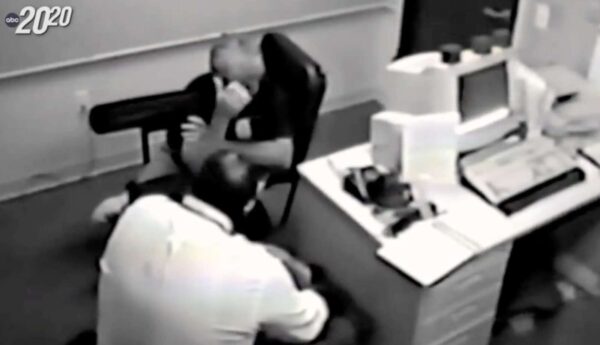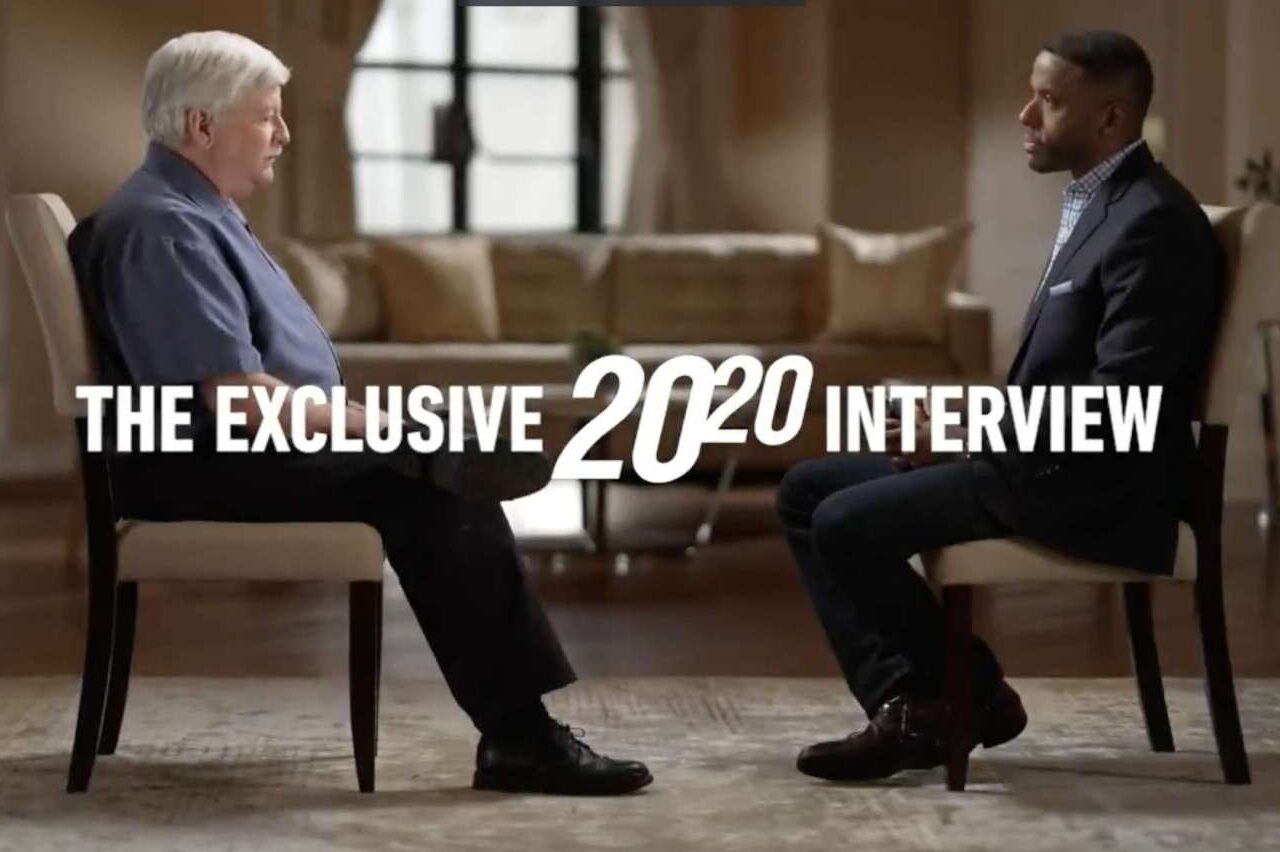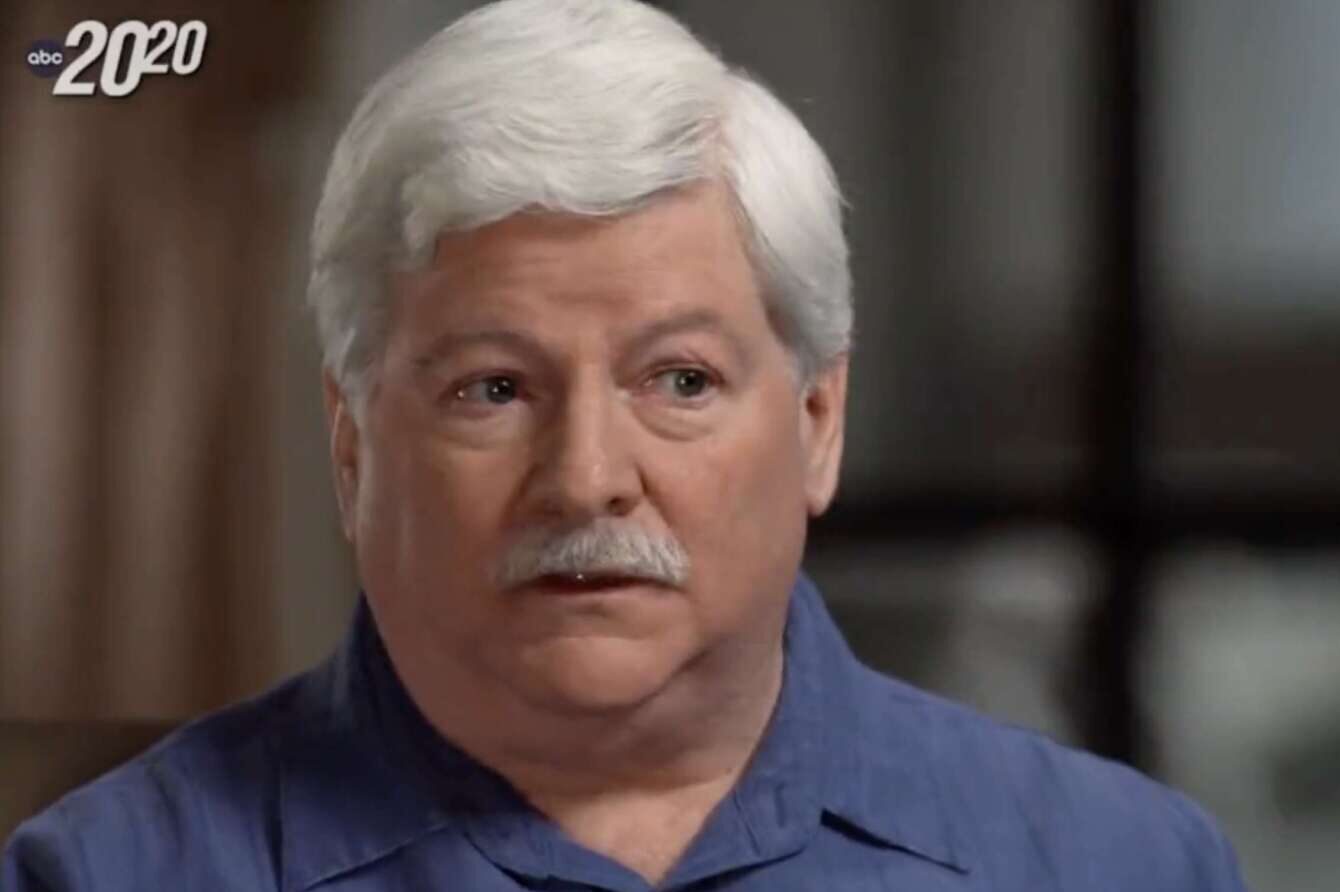This past Friday, ABC true-crime show “20/20” threw a spotlight on the 1998 homicide of an Arlington woman and the acquittal of a major suspect, her then-fiancé, last year.
In “The Confession?” ABC went on a deep dive into the death of Andrea Cincotta in her Arlington apartment.
It explained how a confession 20 years later kicked off a special grand jury investigation into the person who confessed, convicted felon Bobby Joe Leonard, and his alleged accomplice, Cincotta’s fiancé James Christopher Johnson. It concludes with their indictment in 2021 and a murder trial in 2022.
Johnson, who was a primary suspect, he says he discovered Cincotta dead in the closet of the apartment they shared back in August 1998. Prosecutors alleged Johnson had hired Leonard to kill Cincotta for $5,000. Last fall, Leonard pleaded guilty and a trial jury acquitted Johnson, who had maintained his innocence.
The trial happened during the tenure of Commonwealth’s Attorney Parisa Dehghani-Tafti. As the race to elect the next Commonwealth’s Attorney heats up, candidate Josh Katcher blasted Dehghani-Tafti — who was elected on a justice reform platform — in a statement highlighting the 20/20 episode.
“My opponent once described herself as an innocence protection attorney,” he said. “It is entirely beyond me how you square that statement with this prosecution.”
For the report, Johnson gave exclusive interviews to ABC, describing how his life changed the day he says he discovered Cincotta, dead, in a closet.
“Something like this… You’re never going to be the same,” Johnson told ABC. “I used to be a lot more trusting. I trusted everyone, trusted the police, and now my eyes have been opened.”
A criminal genius, or an innocent man who confessed to a murder he didn’t commit? Watch the exclusive 20/20 interview you won’t hear anywhere else. The all-new 20/20 with @RyanSmithTV drops TONIGHT at 9/8c on ABC. Stream on Hulu. pic.twitter.com/JQBUfbcTPB
— 20/20 (@ABC2020) March 10, 2023
Dehghani-Tafti told ARLnow her office prosecuted the case after Leonard — already in prison for kidnapping, raping and attempting to kill a 13-year-old girl — confessed to killing Cincotta.
When someone is killed and we have evidence we believe is credible, it’s our job to stand up for them and for the community. We knew this was going to be a tough case and we took it to the community in the form of an investigative grand jury, the community investigated and brought back indictments for both Mr. Leonard and Mr. Johnson.
Mr. Leonard pleaded guilty and received a life sentence. We litigated Mr. Johnson’s case in the most transparent, fair way we could, giving them all the evidence we had and all the evidence they needed to defend their client. We don’t run away from hard cases and hard cases are the ones that go to trial. The system worked the way it was designed to work and I respect the jury’s verdict.
The episode walks through procedural and substantive missteps Johnson and his attorneys say Arlington County Police Department made investigating the crime in 1998 — and the prosecution made bringing the case to trial in 2022.
It says police processed the crime in a way that made it harder to find fingerprints on Cincotta’s throat. They questioned Johnson for 28 hours before he broke down and said he had a “vision” of harming Cincotta. He wrote this down, didn’t ask for an attorney, and was released, as the description of what he said he did did not match Cincotta’s autopsy.

“From the onset of the investigation, the Arlington County Police Department has remained committed to pursuing justice on behalf of Andrea Cincotta and her family,” ACPD said in a statement to ARLnow. “The court proceedings are the official release of information in this case and we’ll defer to the court records for additional information presented in this case.”
Two decades after the marathon interrogation, prosecutors used the “vision” statement to show the jury that Johnson lied to throw police off. Arlington Circuit Court Judge Judith Wheat ruled the statement was admissible, the Washington Post’s Tom Jackman, who was interviewed by ABC, reported last year.
The “20/20” episode cast doubt on the validity of this evidence.
“How did this case get charged? As a lawyer, I don’t get it,” a member of the defense team, Frank Salvato, told ABC. “I think prosecutors brought this case hoping they could catch lightning in a bottle.”
Jurors, meanwhile, did not buy the argument that the men knew each other.
“You don’t hire someone to kill someone whom you’ve never met,” jury foreman Chen Ling told ABC. “And, out of all the Bobby Joe Leonard testimony, he never claimed that they met. I feel like that was, for me, the important detail that gave reasonable doubt.”
They were wary of deals struck with Leonard to hear his confession and coax him onto the stand. In exchange to confessing to Arlington cold case Detective Rosa Ortiz in 2018 — when Commonwealth’s Attorney Theo Stamos was still in charge — Leonard asked prosecutors not to seek the death penalty. Then, before he took the stand in 2022, he requested to be moved to a lower-security prison.
“We were aware that Bobby Joe Leonard was offered certain things in exchange for his testimony,” said a juror named Chris, who requested ABC withhold his last name. “It seemed to me the police were just hammering home what they took to be the case.”
But the special grand jury that initially investigated Johnson believed there was enough evidence to go to trial, points out Edward Ungvarsky, an Alexandria-based private criminal defense lawyer.
Ungvarsky tells ARLnow that this case is an example of the system working and credited Dehghani-Tafti for bringing the case to the special grand jury and sharing exculpatory information with the defense.
Prosecutors will convene special grand juries “if they are going to give the community, which is the people who comprise the grand jury, the opportunity and power to decide whether to bring charges and what charges to bring and to investigate the case,” Ungvarsky noted. “Using a special grand jury increases community empowerment and accountability in the charging, and provides greater transparency and fairness to the defendant and the defense.”
In addition, special grand juries often have higher standards than regular grand juries, which are more commonly used to indict someone. This process is transcribed and copies are given to defense lawyers before trial. Witnesses testify and jurors can ask questions.
The grand jury “was advantageous for the defense,” Ungvarsky said, adding that they also benefited from the prosecution making available to them a local expert in false confessions, former D.C. police Detective James Trainum.
Trainum said Johnson’s confession was false and advised the prosecution not to use it. Prosecutors shared his information with Johnson’s attorneys, Ungvarsky and one of Johnson’s defense attorney confirmed to ARLnow.
“In this case, there was… lots of favorable information to help the defendant help defend himself at trial, and I think that really needs to be recognize,” Ungvarsky said. “It’s proper to do so because it’s exculpatory, favorable evidence.”
Not providing favorable information, called a “Brady disclosure,” is more common, he says.
Commonwealth’s Attorney candidate Katcher, however, was more pessimistic in his reading. He says the case belies his opponent’s lack of experience.
Katcher’s full statement is below.
Real justice means only engaging in just prosecutions. The 20/20 exposé on my opponent’s decision to prosecute an innocent man for murder, highlights exactly why relevant experience matters when it comes to the Commonwealth’s Attorney’s Office.
This is not about trying ‘tough cases.’ This was about making a tough decision, and my opponent failed. Mr. Johnson will forever live as someone accused of murder.
My opponent once described herself as an innocence protection attorney. It is entirely beyond me how you square that statement with this prosecution.
The foreperson of the jury in the Johnson case asked, “Why did [the prosecution] even bother to bring the case?” My opponent owes an answer to Mr. Johnson and this community.



